Russia’s ruling party retained its supermajority in parliament, further cementing President Vladimir Putin’s grip on power following elections that excluded most opposition politicians and were marred by multiple reports of violations, AP reports.
By Monday, opposition groups said there was widescale evidence of election fraud, reports suggest:
The Moscow Times reported that social media videos allegedly showed ballot stuffing, disappearing ink and ballot boxes with secret doors and seals that did not seal properly. In a bid to appear more open and transparent, video cameras were placed in polling stations across the country that people could watch.
“There is really very little room at the moment to any opposition or any pluralism even in a limited way,” said Oksana Antonenko, a Russia expert at the London-based Control Risks, a risk consultancy firm.
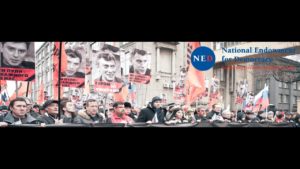 Michael McFaul, a former U.S. ambassador to Russia, criticized tech companies for blocking opposition information while allowing pro-Kremlin materials, The Post adds.
Michael McFaul, a former U.S. ambassador to Russia, criticized tech companies for blocking opposition information while allowing pro-Kremlin materials, The Post adds.
“If social media companies truly want to be impartial in elections, then they have to treat all candidates equally,” he tweeted. “In Russia, for instance, you can’t censor the small d democrats unless you also censor the autocrats. Maybe social media companies cannot defy autocrats,” he added. “But more minimally, they can stop helping them.”
Voters had been limited in choice during the election due to “an increased crackdown on opposition politicians, civil society organizations and independent media outlets, as well as journalists” in the run-up to the vote, the European Union’s High Representative said in a Monday statement.
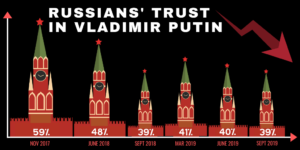 Although a poll earlier this month by the state public-opinion research center VCIOM showed that just 29% of Russians were ready to vote for United Russia, Mr. Putin’s traditional voting bloc of pensioners, law enforcement and the military likely supported the party out of loyalty to the longtime leader, analysts told The Wall Street Journal.
Although a poll earlier this month by the state public-opinion research center VCIOM showed that just 29% of Russians were ready to vote for United Russia, Mr. Putin’s traditional voting bloc of pensioners, law enforcement and the military likely supported the party out of loyalty to the longtime leader, analysts told The Wall Street Journal.
Russians feel that “maybe we don’t like many of these people, but we trust you so much
that we are even ready to vote for [them],” said Sergey Markov, the pro-Kremlin director
of the Institute for Political Studies in Moscow.
Authoritarian systems can sometimes be “enlightened”, with intentions to drive through liberalizing reforms or even pave the way for a transition to democracy, The FT observes. Some in the president’s circle in the early 2000s believed this was his plan. Instead, the regime’s essential emptiness has become clear. The urge to cling to office is motivated by what some insiders say is a messianic delusion that only Putin stands between Russia and chaos. It reflects, too, his own fear and that of system insiders of what might become of them all if he were toppled.
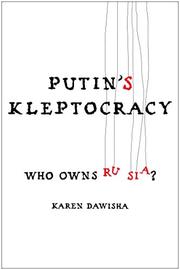 Moscow-based analyst Dmitry Oreshkin says the political climate for United Russia has changed and that is driving the Kremlin’s thinking about 2024. “We are living through a moment when the Kremlin is losing unambiguous control over the minds of voters. We are seeing how voters are experiencing growing anger at what we might call the status quo. People want change,” he told RFE/RL. Stanislav Andreichuk, co-chairman of the independent election-monitoring group Golos, elaborated on this theme in a recent essay:
Moscow-based analyst Dmitry Oreshkin says the political climate for United Russia has changed and that is driving the Kremlin’s thinking about 2024. “We are living through a moment when the Kremlin is losing unambiguous control over the minds of voters. We are seeing how voters are experiencing growing anger at what we might call the status quo. People want change,” he told RFE/RL. Stanislav Andreichuk, co-chairman of the independent election-monitoring group Golos, elaborated on this theme in a recent essay:
“Ten years ago, a truly massive election observer cadre appeared on the scene,” he wrote. “Around five years ago, Russian nonprofits and politicians learned to fundraise to such an extent that an entire class of civil society, not just a handful of organizations, could survive….. Now the state is starting to lose its monopoly of the media space, coercion is becoming ineffective, support from previously loyal electorates is fading out, and new politicians are replacing those who were jailed or forced to emigrate.”
This Russian Duma election is the expression of a new era in Russian politics, with the country now becoming more closed and looking more like the Soviet Union, notes Stefan Meister, an expert on Russia and the post-Soviet space with the German Council on Foreign Relations’ (DGAP). With this denial of reality, Germany and the EU will lose those people in Russia who are striving for a different, more democratic Russia. If that happens, then the cynicism of the “Putin system” will win, he writes for Internationale Politik Quarterly.
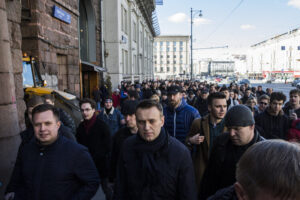
Alexei Navalny. Credit: Wikimedia
Putin has every reason to be angry. He has tried to poison Alexei Navalny, Russia’s opposition leader, locked him up in one of Russia’s harshest penal colonies, outlawed his anti-corruption foundation, chased his comrades out of the country and barred his allies from standing in elections. And yet, after all this, Mr Navalny and his movement are still featuring at the heart of the elections to Russia’s Duma on September 19th, The Economist reports.
And that’s because of the opposition’s advocacy of smart voting, which aims to coalesce opposition-minded voters around one particular candidate running against United Russia in each of the country’s 225 electoral districts, The Times adds. That candidate could be a liberal, a nationalist or a Stalinist. Before Russians go to the polls, they can punch their address into the “Navalny” smartphone app, which then responds with the names of the candidates they should vote for — whether or not voters agree with those persons’ views.
Smart voting has, in effect, become a political party, political analyst Kirill Rogov tells The Economist. “It’s not the name or registration that defines a party, but its ability to consolidate voters and influence the outcome of the elections,” he says.

Levada
Support for Putin’s United Russia party had been hovering around 30 percent, according to the independent pollster Levada, The Washington Post adds. Yet analysts said there was little doubt that the party would take the lion’s share of seats.
“The signs are very bad. I think this is the worst year in post-Soviet history,” said Andrei Kolesnikov, an analyst with the Carnegie Moscow Center. “It’s the same regime we have had for many years, but it’s much more repressive and much more cruel.”
To retain control in the elections, the Kremlin reached very deep into its bag of tricks and United Russia has taken election shenanigans in Putin’s sham democracy to a new level, writes Alexey Kovalev, an investigative editor at Meduza.
The Kremlin was effectively running a Don’t-Get-Out-the-Vote campaign by boring people away from the polls, Moscow-based journalist Matthew Luxmoore writes for Foreign Policy.
The election results say nothing about the stability or endurance of Putin’s system. As Boris Vishnevsky once noted, Ceausescu had 99 percent support in official numbers just a week before his overthrow, Vladimir Kara-Murza writes for the Post.
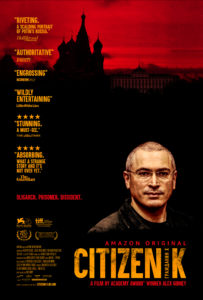 “Every time [under Putin], elections have looked a little less like elections. Now this process is complete,” exiled Putin critic Mikhail Khodorkovsky (right) told Echo of Moscow radio this week. “The next time our people will vote for real will be after they earn that right on the barricades.”
“Every time [under Putin], elections have looked a little less like elections. Now this process is complete,” exiled Putin critic Mikhail Khodorkovsky (right) told Echo of Moscow radio this week. “The next time our people will vote for real will be after they earn that right on the barricades.”
Many observers see the elections, and the preceding wave of repression, as the latest stage in Russia’s transition from flawed democracy to fully fledged authoritarian state, says a new report from the European Parliament. It advocates an alliance with the U.S. and other like-minded partners to counterbalance Russia and China’s efforts to weaken democracy worldwide and destabilize the European political order. Allies should advance sanctions, policies to counter illicit financial flows, and support for civil society and human rights activists.
The Kremlin’s power has rested on two pillars, The Economist adds: its monopoly of information and the threat of repression. But the spread of fast mobile internet has changed Russian politics. The Liberal Mission Foundation, a think-tank based in Moscow, reckons that the share of people who get their news online has shot up from 18% to 45% in the past five years. Hence 70% of Russians know about Mr Navalny.
With the elections over, protests are unlikely, since the opposition and civil society are demoralized, argues Andrei Kolesnikov, a senior fellow at the Carnegie Moscow Center. This is not 2011, when electoral fraud at the Duma elections triggered mass protests. Back then, basic civic activism didn’t amount to breaking the law, and compromise, dialogue, and vacillation within the establishment were still possible, he writes for Russia Matters.
“Putin did not allow his leading opponents to be on the ballot (arresting some); controls almost all (1) media, (2) governors, (3) parliament, (4) big business; has unlimited resources; falsified some votes again; and yet still only won 49%? That’s not victory. That’s weakness,” Stanford’s McFaul tweeted.
Putin did not allow his leading opponents to be on the ballot (arresting some); controls almost all (1) media, (2) governors, (3) parliament, (4) big business; has unlimited resources; falsified some votes again; and yet still only won 49%? That’s not victory. That’s weakness.
— Michael McFaul (@McFaul) September 20, 2021







